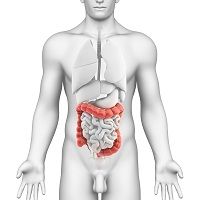Article
Long-Term Vedolizumab Therapy in Patients with Crohn's Disease and Ulcerative Colitis
Author(s):
Interim study results presented at ACG 2014 indicate that treatment with vedolizumab safely and effectively maintains long-term clinical remission and response in patients with Crohn's disease and ulcerative colitis.

Results from the GEMINI 2 study showed that treatment with vedolizumab, a selective anti-alpha-4-beta-7 monoclonal antibody, was safe and effective as induction and maintenance therapy in patients diagnosed with Crohn’s disease. The follow-up study GEMINI LTS is an ongoing open-label extension study assessing the long-term safety and efficacy of vedolizumab 300 mg in patients with Crohn’s disease or ulcerative colitis.
A poster sponsored by Takeda Pharmaceuticals at the American College of Gastroenterology 2014 Annual Scientific Meeting and Postgraduate Course presented interim data from the GEMINI LTS study, which included patients who had completed GEMINI 2, patients who had withdrawn from that study, and new enrollees.
In GEMINI LTS, researchers evaluated the effects on rates of clinical remission and response of an additional 52 weeks of treatment with vedolizumab in patients who completed the GEMINI 2 protocol (for a total of 104 weeks of treatment). For the study, clinical remission was defined as a Harvey-Bradshaw Index (HBI) score less than or equal to 4. Clinical response was defined as a decrease in HBI score of 3 or more points from study week 0.
The GEMINI 2 study included a 3-week screening and enrollment period, followed by a 6-week induction phase in which one cohort of patients (n=747) received vedolizumab 300 mg and another was randomized 3:2 to receive vedolizumab 300 mg (n=220) or placebo (n=148). Patients treated with vedolizumab who met the Week 6 response criteria (reduction in Crohn’s Disease Activity Index score of 70 points or greater from baseline) were assigned maintenance therapy with vedolizumab 300 mg every 4 weeks (n=154) or 8 weeks (n=154) up to Week 52. Non-responders at Week 6 received vedolizumab 300 mg every 4 weeks (n=506) up to Week 52.
In GEMINI LTS, baseline characteristics of GEMINI 2 completers and other patients in the study with Crohn’s disease were similar (including HBI score, CRP level, age, BMI, and concomitant medication use). However, Crohn’s disease duration (9.1 vs. 10.1) and rate of prior tumor necrosis factor (TNF) antagonist failure (45.8% vs. 63.2%) were lower for GEMINI 2 completers compared with the rest of the study cohort. The opposite was true for other prior treatment failures, with GEMINI 2 completers having higher rates for non-TNF antagonist immunosuppressives (37.8% vs. 26.1%) and corticosteroids (14.7% vs. 8.3%).
The authors reported that, among GEMINI 2 completers, clinical remission and response rates “were maintained among patients with 104 weeks of vedolizumab exposure regardless of prior TNF antagonist failure status.” Just over 60% of all such patients were in clinical remission at Week 104, compared with 69.2% of patients who had not previously failed treatment with TNA antagonists, and 50.7% of patients who had. The breakdown was similar when looking at clinical response over time, with 73.9% of all patients showing a clinical response at Week 104, compared with 77.4% of patients who had not previously failed treatment with TNA antagonists, 69.9% of patients who had.
In terms of safety, the authors reported that “incidences of adverse events (AEs) and serious adverse events (SAEs) in GEMINI LTS were generally similar between vedolizumab GEMINI 2 completers and the overall Crohn’s disease population.” The most frequently reported AEs included exacerbation of Crohn’s disease, arthralgia, headache, abdominal pain, nausea, and pyrexia.
Based on these interim results, the authors concluded that vedolizumab is safe and effective in maintaining long-term clinical remission and response “for an additional 52 weeks in patients who had completed 52 weeks of vedolizumab therapy in GEMINI 2.”




